Gilbert to attempt first Roubaix-Liege double in 35 years
Deceuninck-QuickStep rider a favourite for Sunday
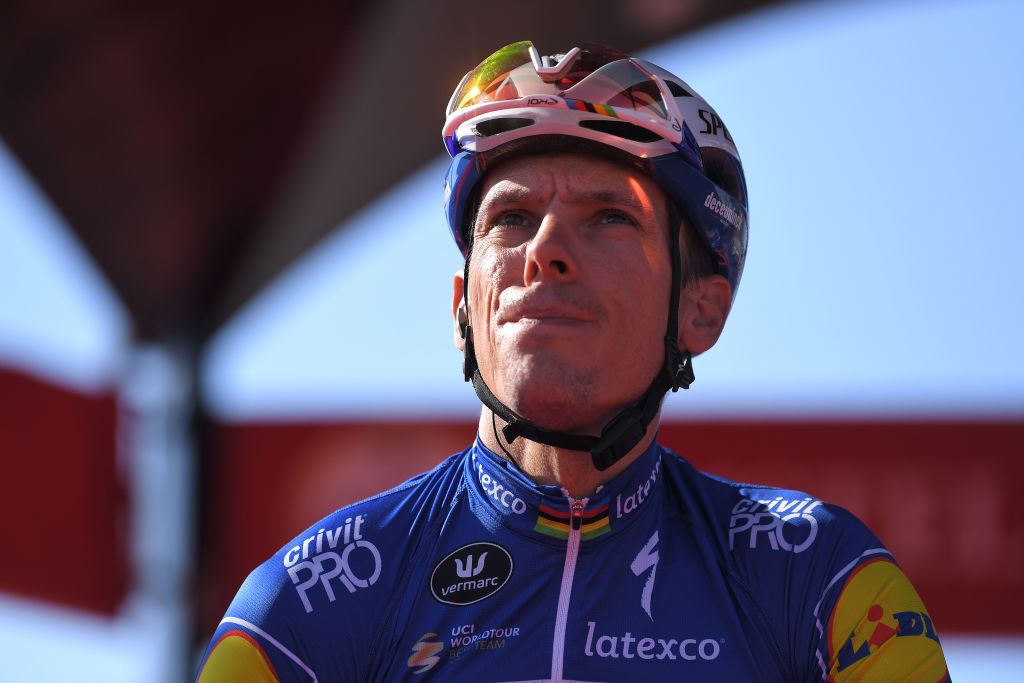
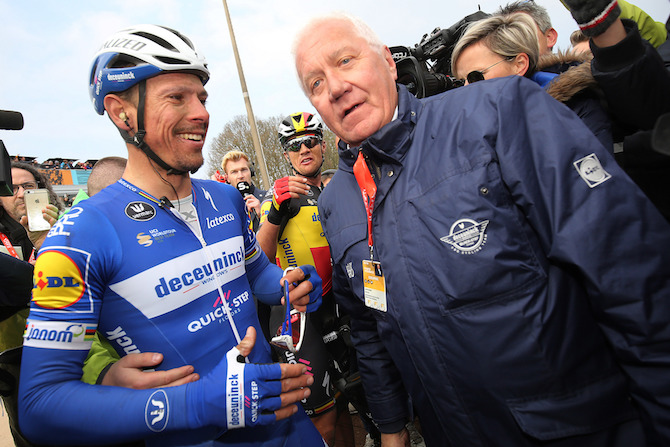
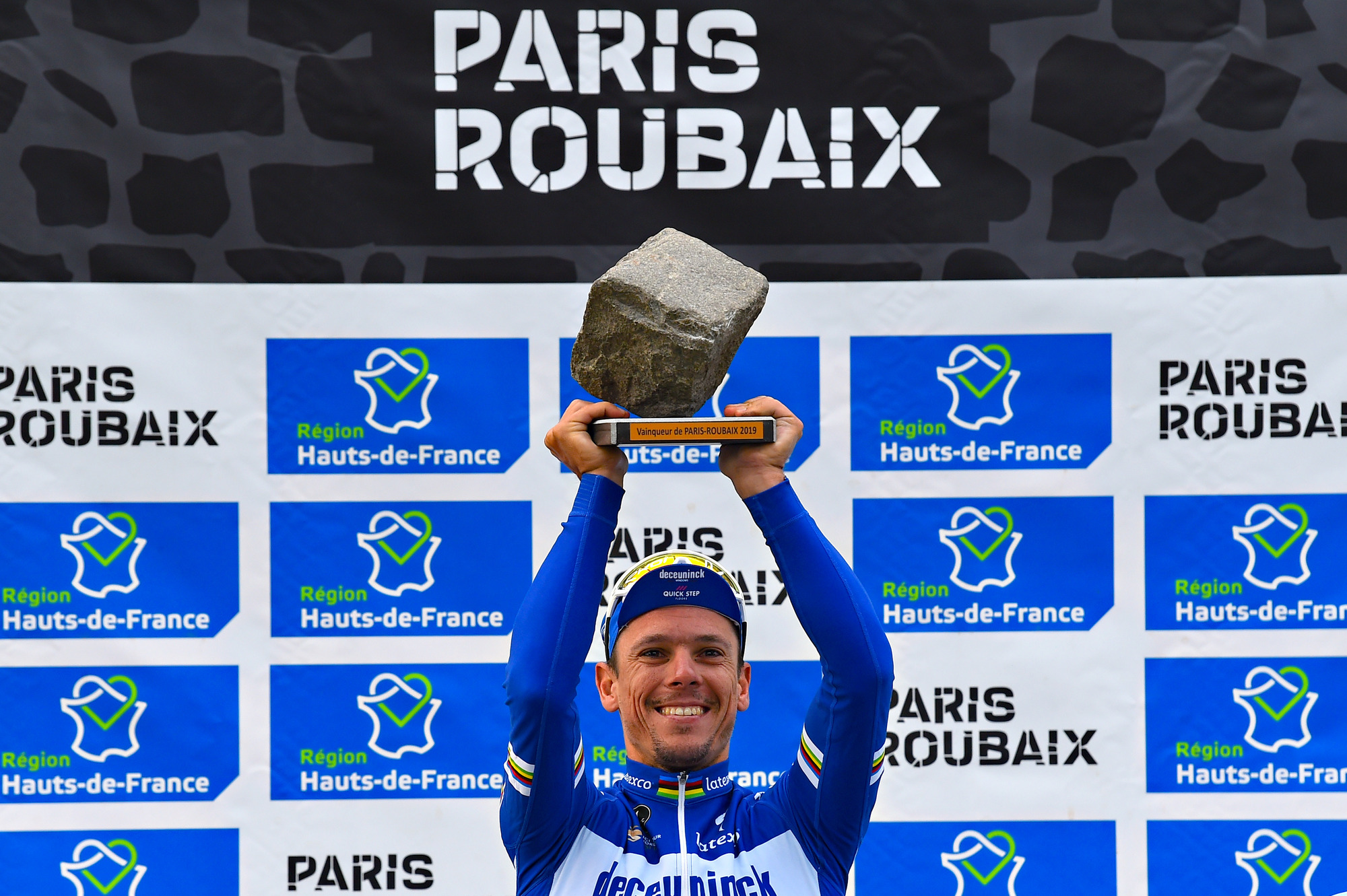
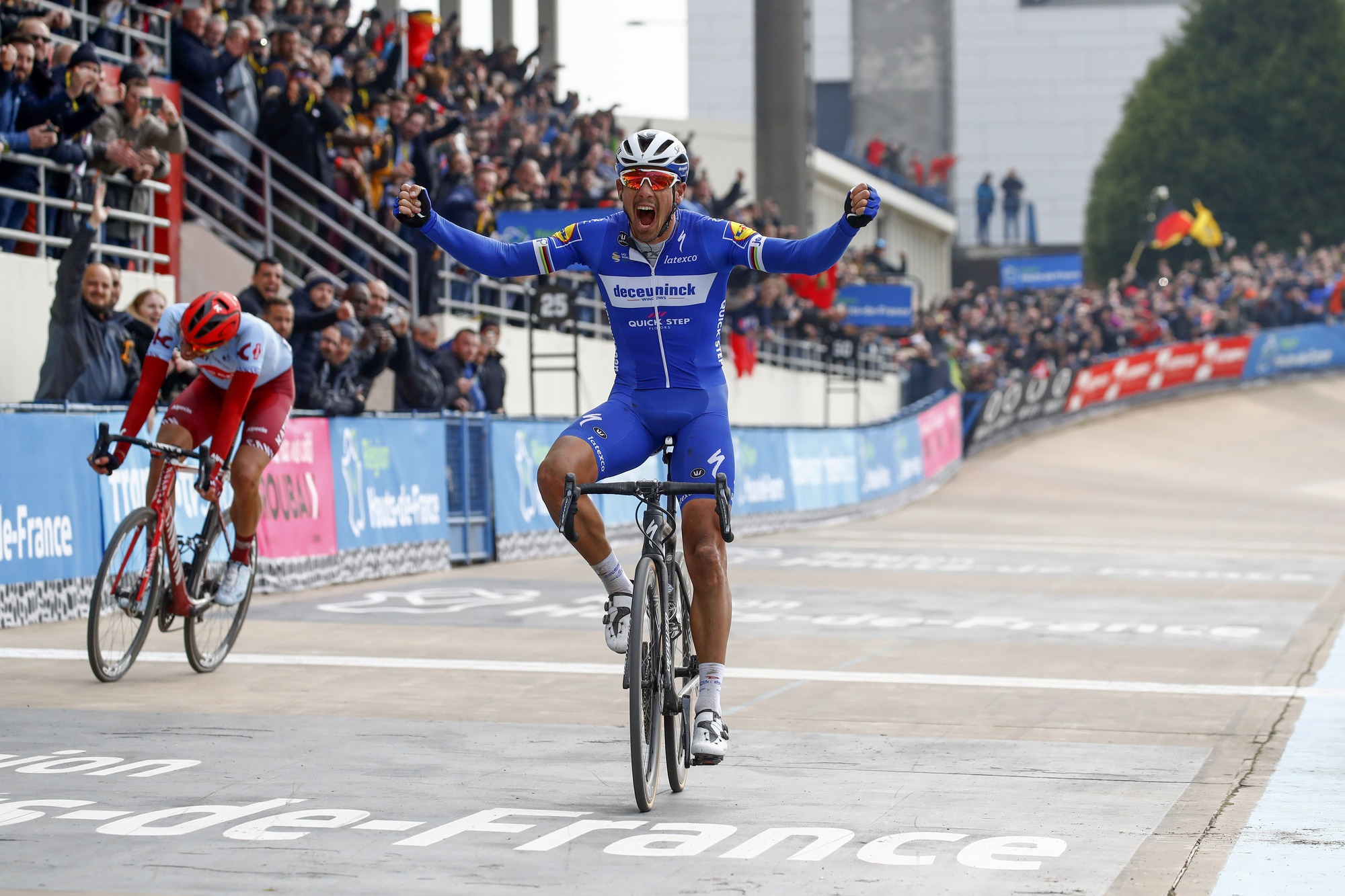
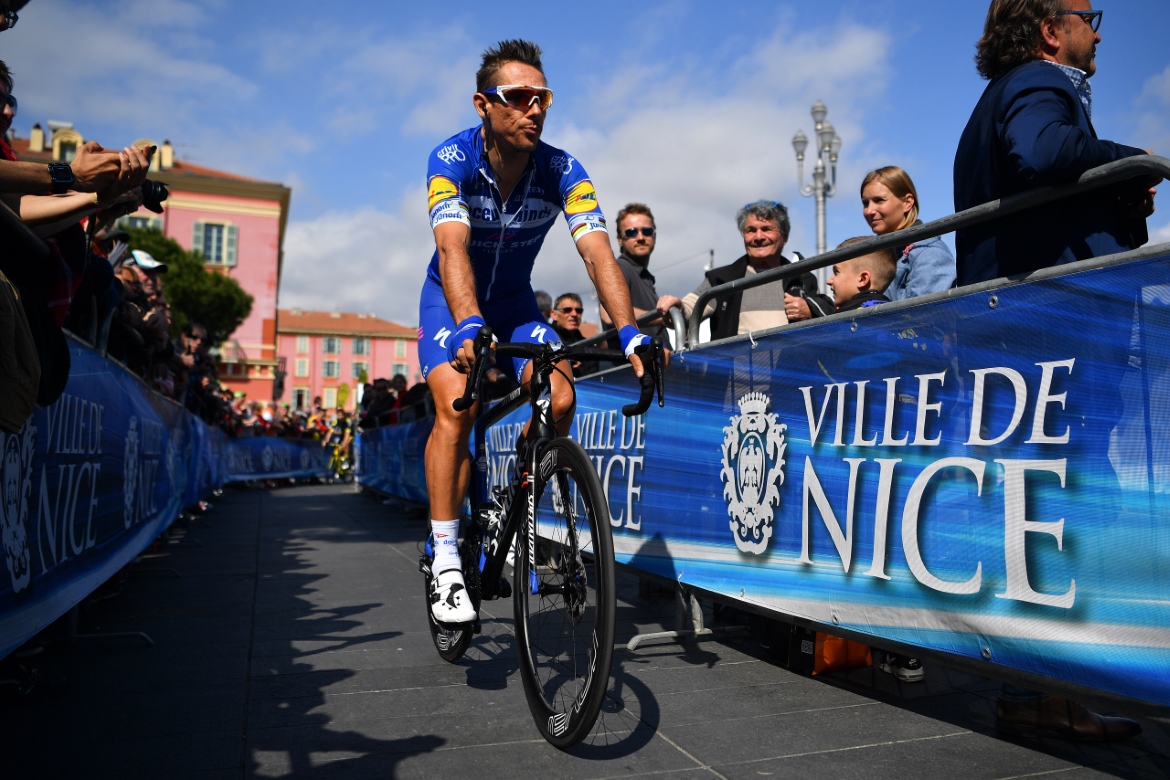
Julian Alaphilippe (Deceuninck-QuickStep) is the big favourite for Liège-Bastogne-Liège on Sunday, but his rivals know that they can ill afford to ignore the Belgian squad's second option for La Doyenne on Sunday - Philippe Gilbert.
It's fair to say that Philippe Gilbert drew a little less attention than the Frenchman on Friday's pre-race press conference for the team. But the Belgian's recent victory in Paris-Roubaix, as well as his own considerable experience in Liège-Bastogne-Liège – including a victory in 2011 – show that the veteran all-rounder could well have the form and the knowledge to go for a second win.
Together with Vincenzo Nibali (Bahrain-Merida), Gilbert has the most number of finishes - 12 - in Liège-Bastogne-Liège, one more than Alejandro Valverde (Movistar). A victory for Gilbert would make him the first winner of Roubaix and Liège since Sean Kelly in 1984, whilst, for the record, Alaphilippe would be the first to do the Milan-San Remo and Liège double since Eddy Merckx in 1975. If either of them cross the Boulevard d'Avroy finish with the arms in the air, it would also be the first time, too, that Deceuninck-Quick Step have taken three Monuments in a single spring.
Gilbert, though, recognised that even with a list of participations that started back in 2004 when he finished 40th, the new route for 2019 meant this was his first time in a 'true' Liège-Bastogne-Liège, with a finish in the city centre.
"I'm happy for that reason," he told reporters. "I'll be able to say at least I did it once. For the race, for the town for the public and for the riders, finishing in the middle of Liège is a plus."
As for the effect on the race itself, Gilbert argued that it will be different, "more dynamic."
"That said, there are a lot of major roads, and it's normally a headwind on the return leg, so that can block things up a bit. In lots of places, even with a minute's advantage, the riders will remain in sight of the pursuers."
Get The Leadout Newsletter
The latest race content, interviews, features, reviews and expert buying guides, direct to your inbox!
He did not rule out, though, that a rider could try an all-out long-distance attack from the mid-race trilogy of very tough climbs, the Wanne, Stockeu and Haut-Levée, pointing out that with the addition of a fourth climb, the Mont-le-Soie, just before, that sector is even harder.
Liège is not just Gilbert's 'home' race, La Redoute, the race's most emblematic climb, has a particular importance for him, given he grew up nearby and most of his supporters gather on its slopes and an attack there by Gilbert would be a true crowd-pleaser for local fans.
But as he pointed out, the finish in Liege city centre doesn't just favour the climbers, it also gave fast finishers like Michael Matthews (Team Sunweb) or Alaphilippe an added opportunity. In addition, he said, it would be very unwise to underestimate a certain Alejandro Valverde (Movistar).
"After the [last climb of the] Roche-aux-Faucons, the descent is fast, very technical in its first part with tight corners and then we drop down to the centre very quickly. It's possible to finish alone. Anybody with 20 seconds at the summit of the Roche-aux-Faucons will surely win the race, because it'll be very difficult to bring them back."
Alasdair Fotheringham has been reporting on cycling since 1991. He has covered every Tour de France since 1992 bar one, as well as numerous other bike races of all shapes and sizes, ranging from the Olympic Games in 2008 to the now sadly defunct Subida a Urkiola hill climb in Spain. As well as working for Cyclingnews, he has also written for The Independent, The Guardian, ProCycling, The Express and Reuters.
